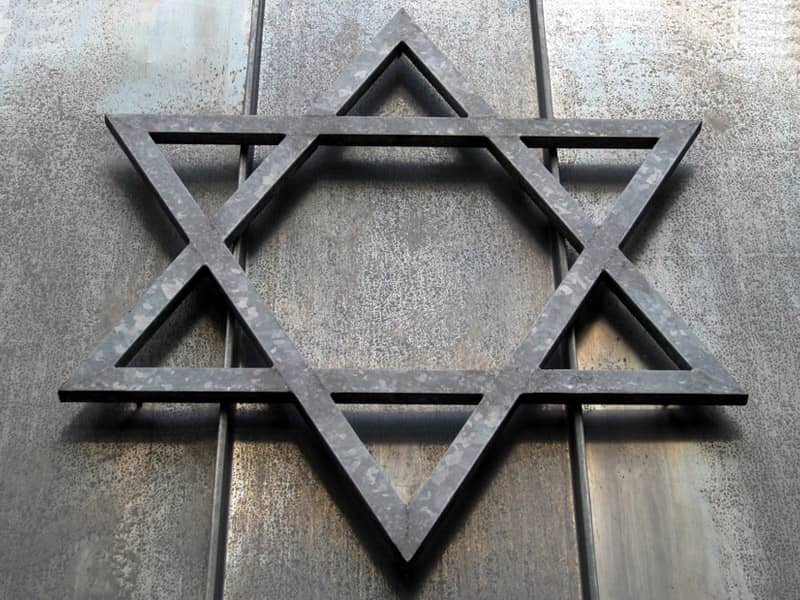The issue of same-sex marriage has been debated in the United States for many years now, and American Jewish communities have joined in on the discussions, adding Jewish values and ethics to the conversation. For Jewish communities, there are two primary questions. First, should the United States government legalize same-sex marriage, offering homosexual couples the same legal benefits that married heterosexual couples have? Secondly, should rabbis perform same-sex Jewish weddings, and if so, can these ceremonies be considered kiddushin (the Hebrew term for holy unions)? This would give them the same status as heterosexual marriages. The three primary liberal Jewish denominations-Reform, Reconstructionist, and Conservative-have been grappling with these questions for over a decade.
Reconstructionist Judaism
The Reconstructionist movement expressed its support for the full inclusion of gay men and lesbians in all aspects of Jewish life in its 1992 Report of the Reconstructionist Commission on Homosexuality. The report affirmed the holiness of homosexual relationships and the need to affirm them in a Jewish context: "As we celebrate the love between heterosexual couples, so too we celebrate the love between gay or lesbian Jews." The Reconstructionist movement today also fully endorses efforts to legalize civil same-sex marriages and grant homosexual couples equal benefits.
Reconstructionist Rabbi Rebecca Alpert, author of Like Bread on the Seder Plate: Jewish Lesbians and the Transformation of Tradition and co-author of Exploring Judaism: A Reconstructionist Approach, has argued that the Jewish principle of economic justice demands support for civil gay and lesbian marriage, because the absence of legal benefits for same-gender couples can cause them significant financial harm. While not required to do so, most Reconstructionist rabbis today perform same-sex Jewish weddings, which are included in the Reconstructionist Rabbi's Manual. Many use the traditional terminology and symbols of kiddushin used for heterosexual marriages.
The Reform Movement has called for civil same-sex marriage for many years. The Central Conference of American Rabbis (CCAR), the professional association of Reform rabbis, passed a resolution in 1996 opposing "governmental efforts to ban gay and lesbian marriage." The Union of American Hebrew Congregations, the congregational arm of the Reform movement, followed suit in 1997, resolving to, "support secular efforts to promote legislation which would provide civil marriage equal opportunity for gay men and lesbians."
In a December 1996 statement commending the decision of the Circuit Court of Hawaii to recognize same-sex marriages, the Associate Director of the Religious Action Center of Reform Judaism said: "The love that God calls us to, the love that binds two people together in a loving and devoted commitment, is accessible to all of God's children. Gay and lesbian couples should have the legal right, as heterosexual couples do, to form such lasting partnerships."
The issue of gay and lesbian Jewish weddings, however, has been more controversial in the Reform movement. In 1997, the CCAR Committee on Responsa voted by a majority of 7 to 2 that homosexual relationships do not fit within the Jewish legal category of kiddushin. It further stated that Jewish marriage does not exist apart from kiddushin. In other words, while the Reform movement supported same-sex civil marriage, it rejected the notion of same-sex Jewish marriage per se.
Three years later, a different conclusion was reached by a much larger body. In March 2000, the CCAR voted overwhelmingly to support colleagues who choose to perform same-sex ceremonies. Their "Resolution on Same Gender Officiation" states, "that the relationship of a Jewish, same gender couple is worthy of affirmation through appropriate Jewish ritual." However, the final text of the resolution allowed for individual rabbis to choose not to perform such ceremonies. In addition, it avoided the term kiddushin, leaving open the question of the exact form or Jewish status of the ceremonies. It also called for the development of sample ceremonies to be used as a resource for those rabbis who plan to perform same-sex Jewish weddings.
Conservative Movement
Same-sex marriage and other gay and lesbian issues meet with little consensus in the Conservative movement. The standing ruling of its Committee of Jewish Law and Standards, which determines the official positions of Conservative Judaism, is that Jewish law prohibits homosexuality, and therefore Jewish same-sex marriage is not appropriate. However, many influential Conservative leaders, including Rabbis Bradley Artson and Elliot Dorff, disagree with the Committee's interpretation of Jewish law and call for support of civil and Jewish same-sex marriage.
The Conservative Rabbinical Assembly has endorsed civil rights for gay men and lesbians, without specifically endorsing civil same-sex marriage. There is a small minority of Conservative rabbis who perform same-sex Jewish weddings, indicating widespread ambivalence on this issue.
Orthodoxy
While same-sex marriage is commonly discussed in liberal Jewish communities, Orthodox Jewish groups have also voiced their opinions. The Union of Orthodox Jewish Congregations of America (O.U.) has publicly rejected civil and Jewish same-sex marriage. A December 1999 statement explained its position. "While the Orthodox Jewish community in no way condones discrimination against individuals on the basis of their private conduct, we believe that America's moral values and traditions, of which traditional Judaism is a fountainhead, clearly assert that the unique status of marriage is reserved for the sacred union of a man and a woman in a loving relationship."
It should be noted, however, that while no major Orthodox institution has publicly endorsed same-sex marriage, there are a few voices within Orthodox communities, most notably Rabbi Steven Greenberg, who call for new interpretations of halakhah (Jewish law) which would allow for more acceptance of homosexuality.

